The Anglo-Saxon Period When the Romans left Britain

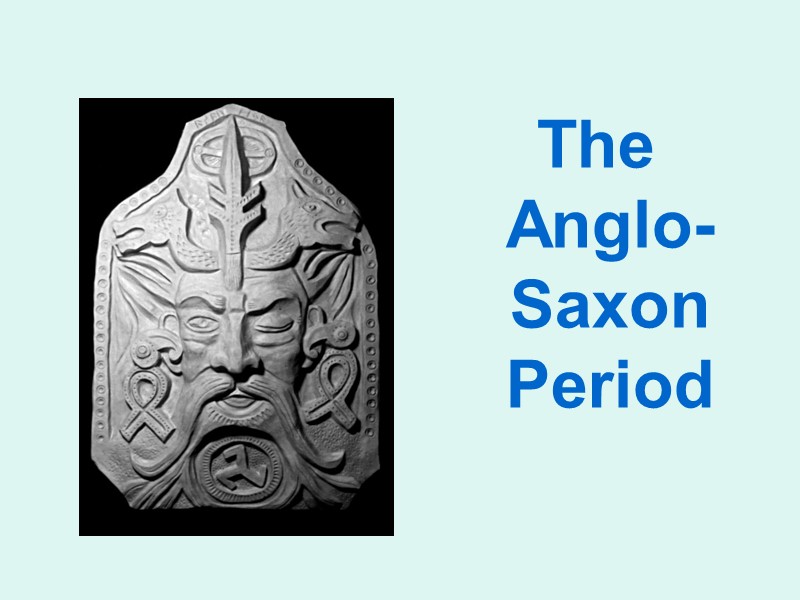
The Anglo-Saxon Period
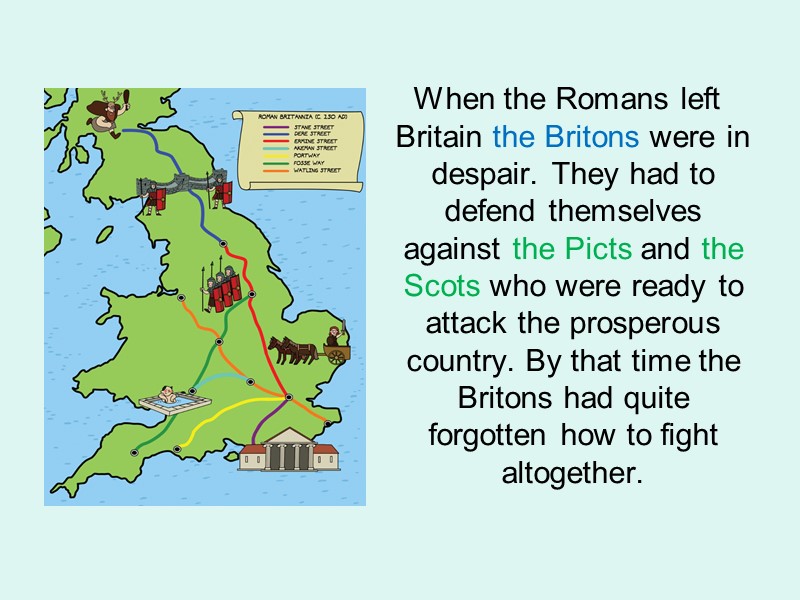
When the Romans left Britain the Britons were in despair. They had to defend themselves against the Picts and the Scots who were ready to attack the prosperous country. By that time the Britons had quite forgotten how to fight altogether.
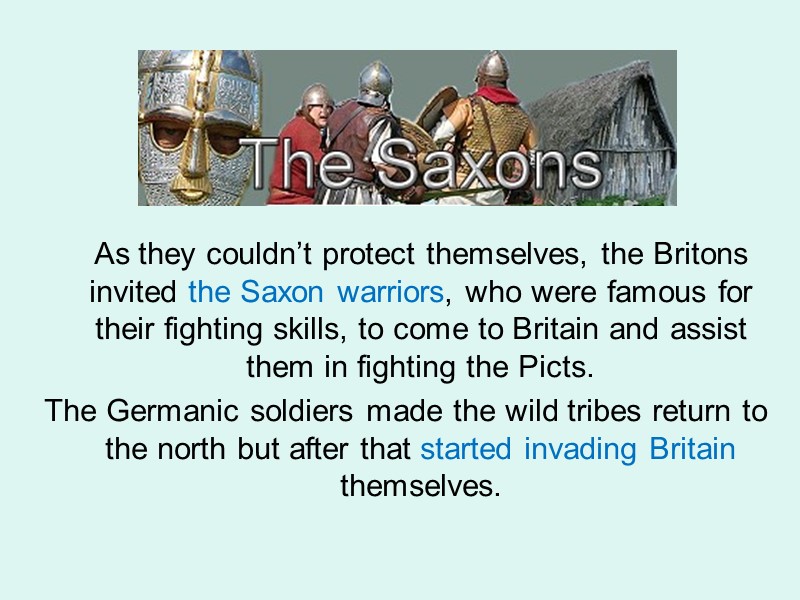
As they couldn’t protect themselves, the Britons invited the Saxon warriors, who were famous for their fighting skills, to come to Britain and assist them in fighting the Picts. The Germanic soldiers made the wild tribes return to the north but after that started invading Britain themselves.
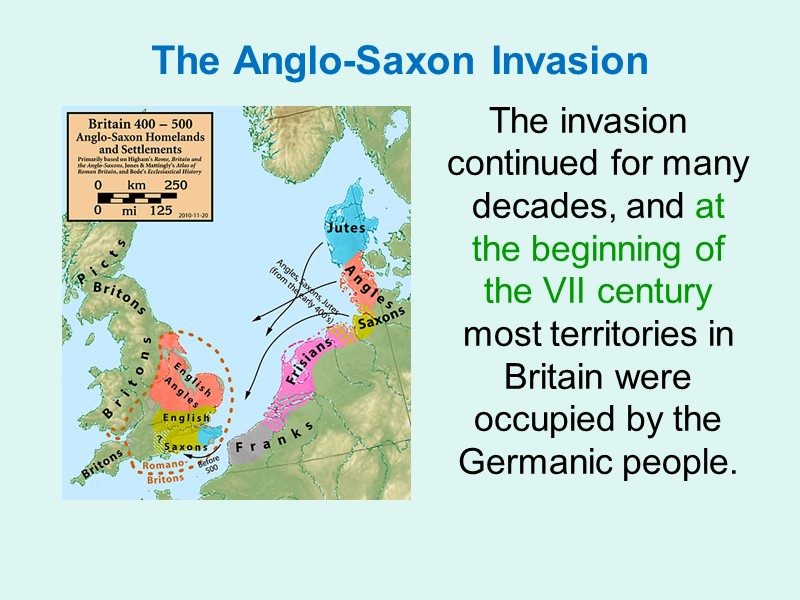
The Anglo-Saxon Invasion The invasion continued for many decades, and at the beginning of the VII century most territories in Britain were occupied by the Germanic people.
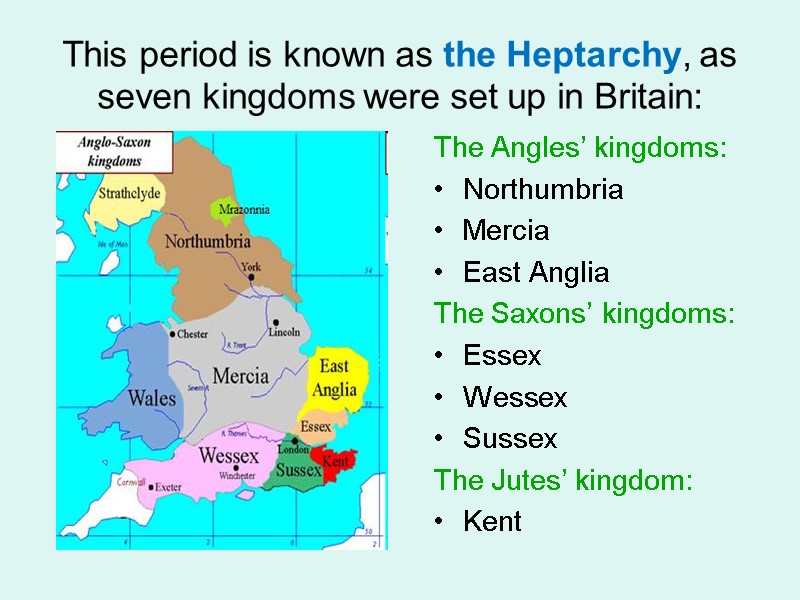
This period is known as the Heptarchy, as seven kingdoms were set up in Britain: The Angles’ kingdoms: Northumbria Mercia East Anglia The Saxons’ kingdoms: Essex Wessex Sussex The Jutes’ kingdom: Kent
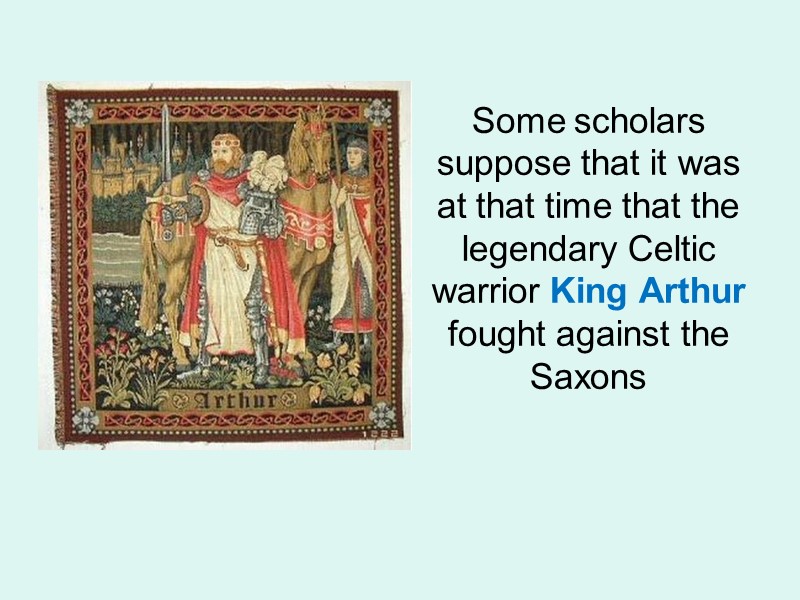
Some scholars suppose that it was at that time that the legendary Celtic warrior King Arthur fought against the Saxons
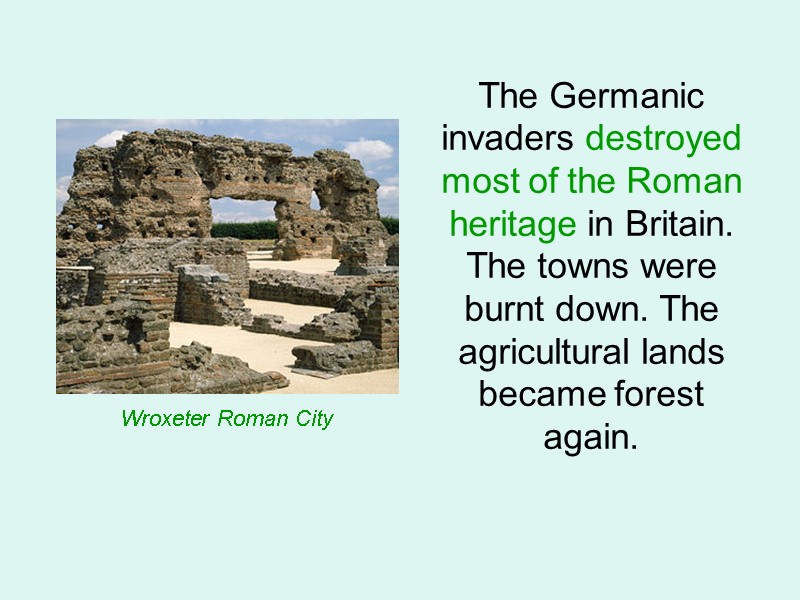
The Germanic invaders destroyed most of the Roman heritage in Britain. The towns were burnt down. The agricultural lands became forest again. Wroxeter Roman City
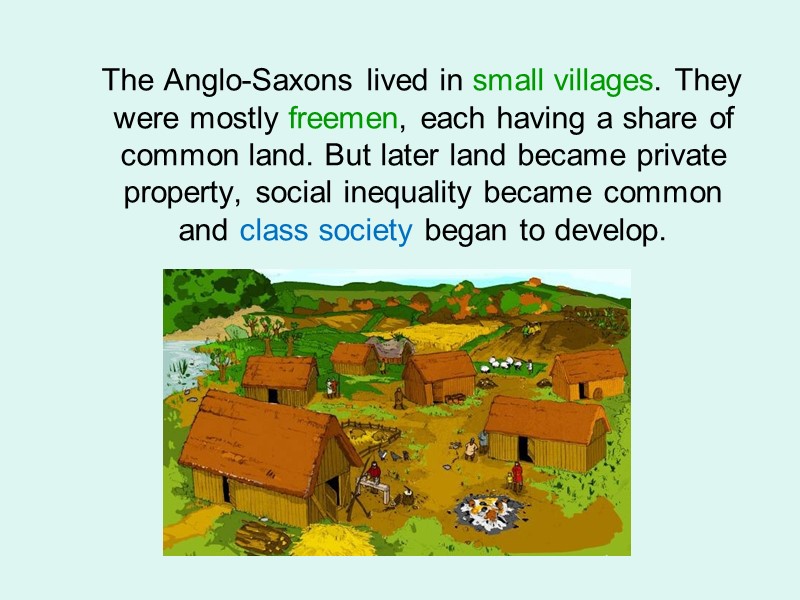
The Anglo-Saxons lived in small villages. They were mostly freemen, each having a share of common land. But later land became private property, social inequality became common and class society began to develop.
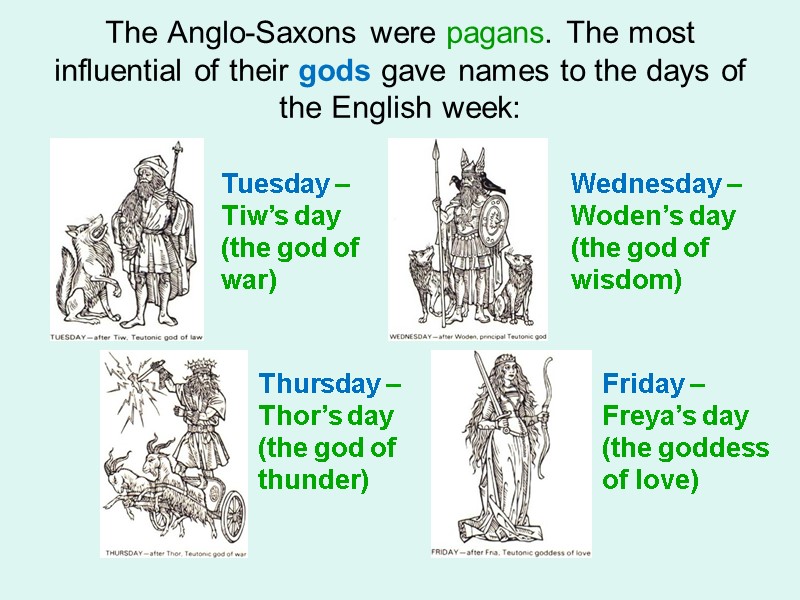
The Anglo-Saxons were pagans. The most influential of their gods gave names to the days of the English week: Tuesday – Tiw’s day (the god of war) Wednesday – Woden’s day (the god of wisdom) Thursday – Thor’s day (the god of thunder) Friday – Freya’s day (the goddess of love)
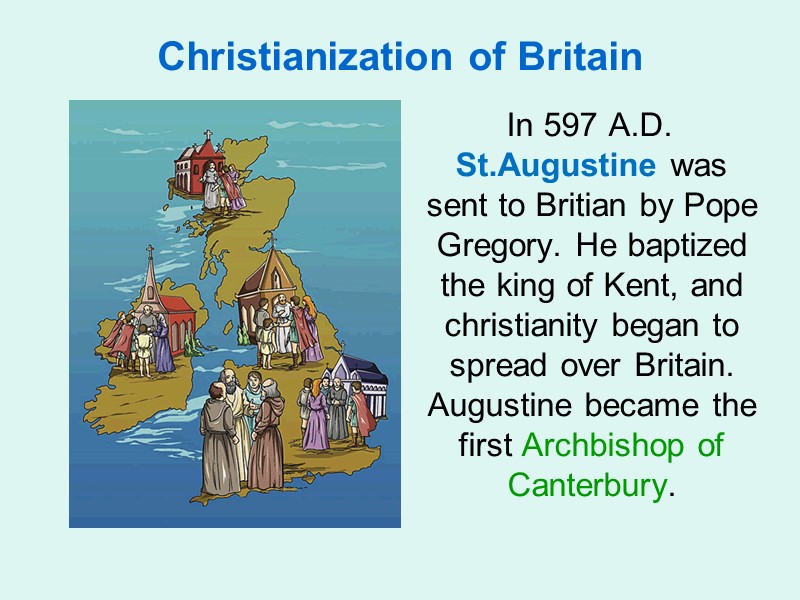
Christianization of Britain In 597 A.D. St.Augustine was sent to Britian by Pope Gregory. He baptized the king of Kent, and christianity began to spread over Britain. Augustine became the first Archbishop of Canterbury.
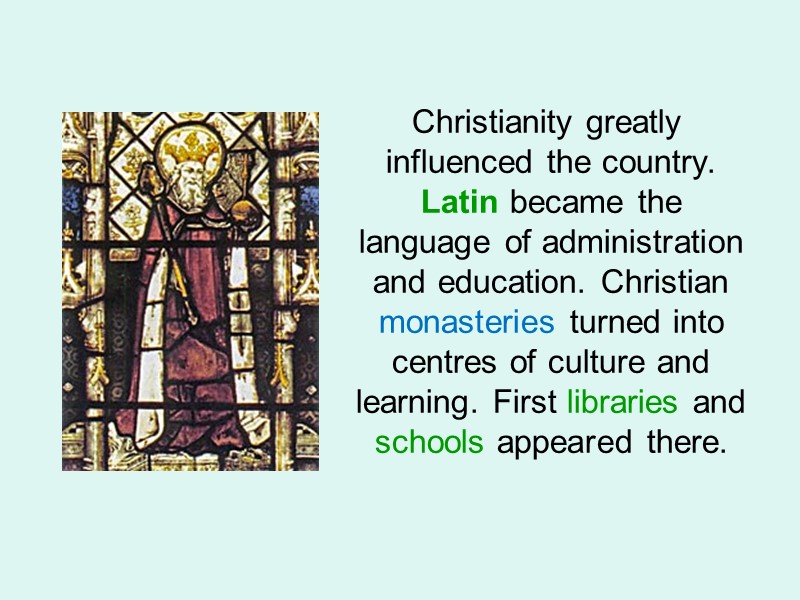
Christianity greatly influenced the country. Latin became the language of administration and education. Christian monasteries turned into centres of culture and learning. First libraries and schools appeared there.
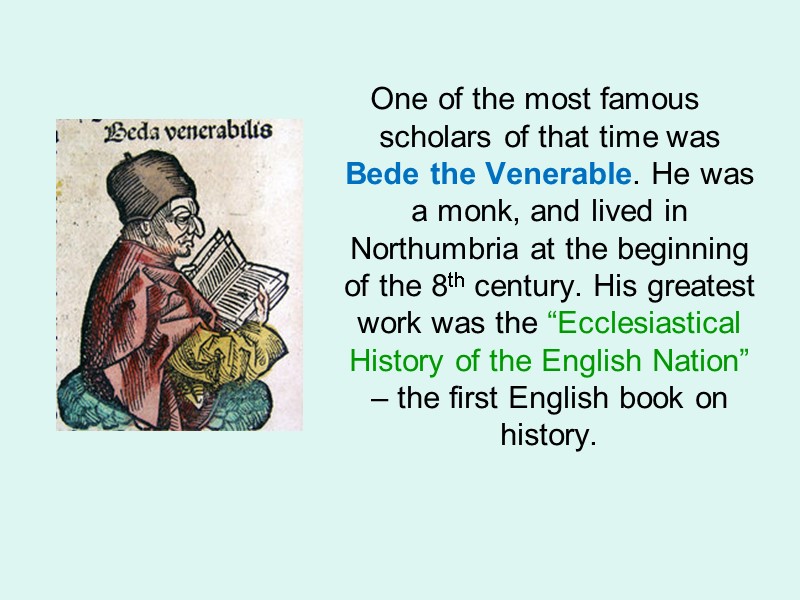
One of the most famous scholars of that time was Bede the Venerable. He was a monk, and lived in Northumbria at the beginning of the 8th century. His greatest work was the “Ecclesiastical History of the English Nation” – the first English book on history.
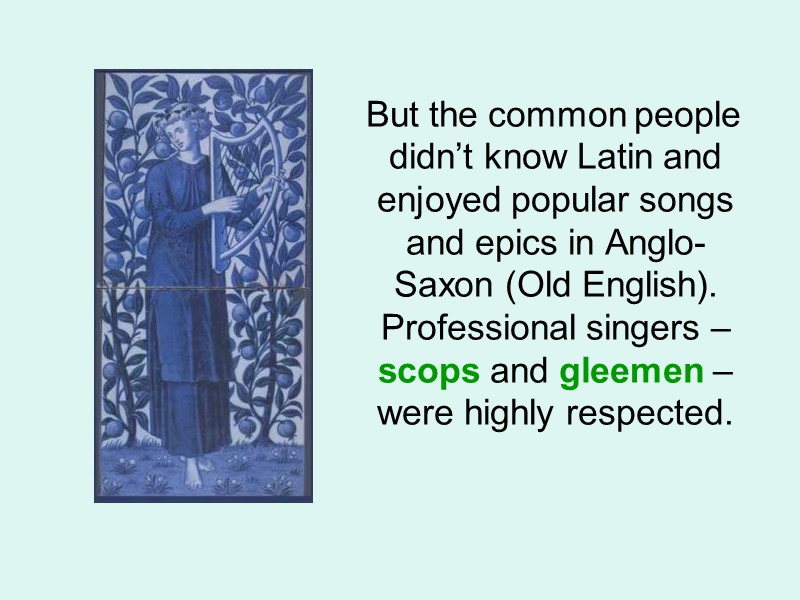
But the common people didn’t know Latin and enjoyed popular songs and epics in Anglo-Saxon (Old English). Professional singers – scops and gleemen – were highly respected.
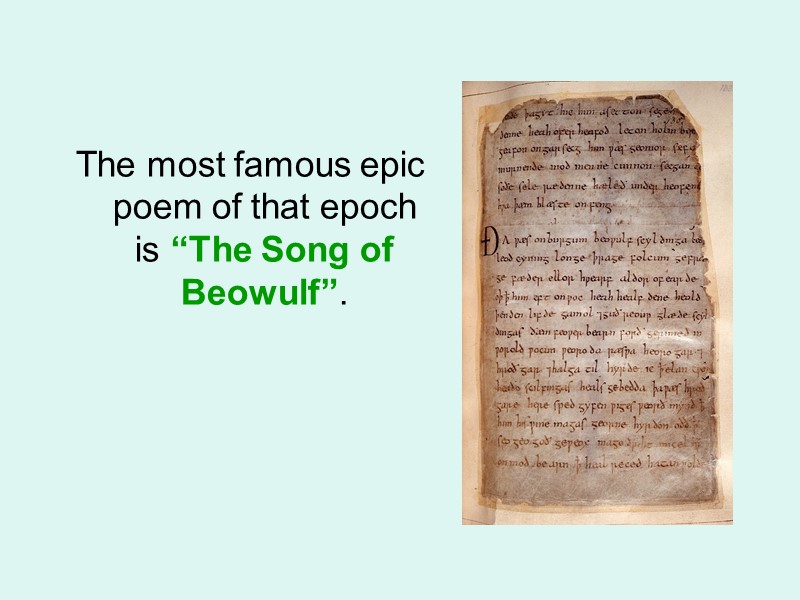
The most famous epic poem of that epoch is “The Song of Beowulf”.
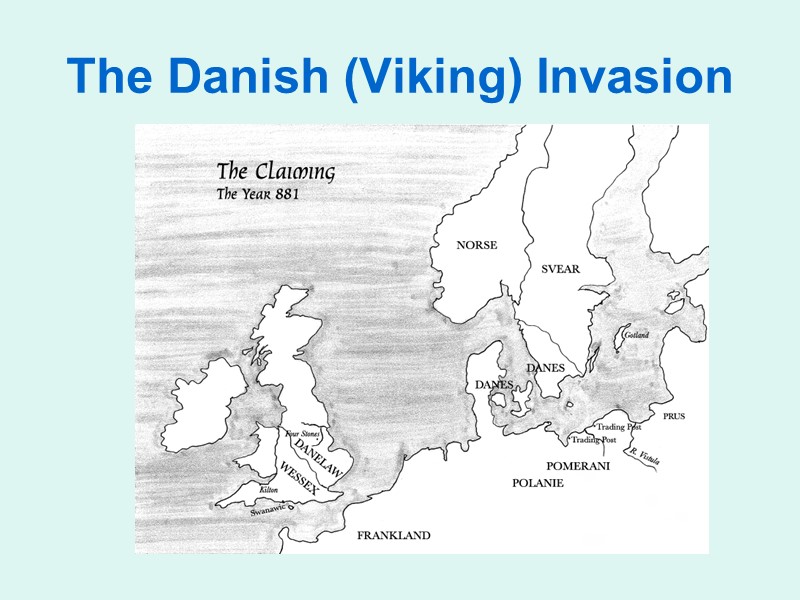
The Danish (Viking) Invasion
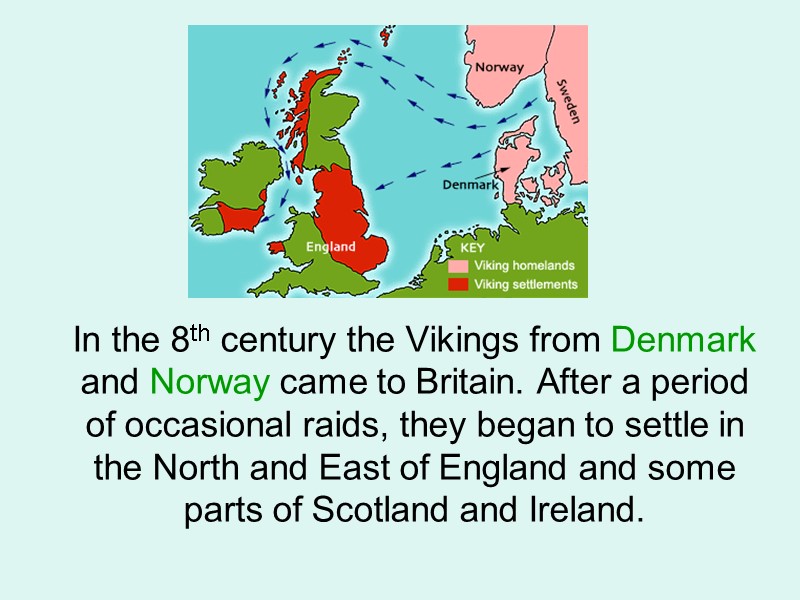
In the 8th century the Vikings from Denmark and Norway came to Britain. After a period of occasional raids, they began to settle in the North and East of England and some parts of Scotland and Ireland.
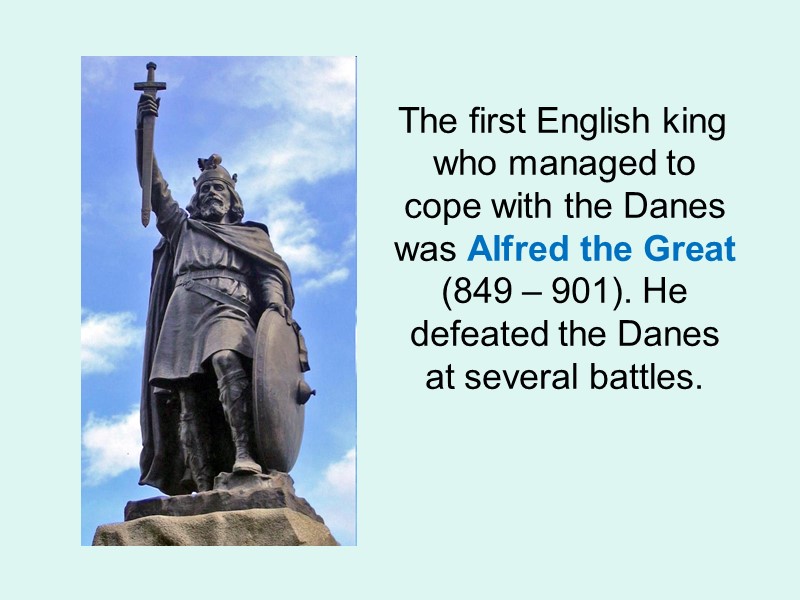
The first English king who managed to cope with the Danes was Alfred the Great (849 – 901). He defeated the Danes at several battles.
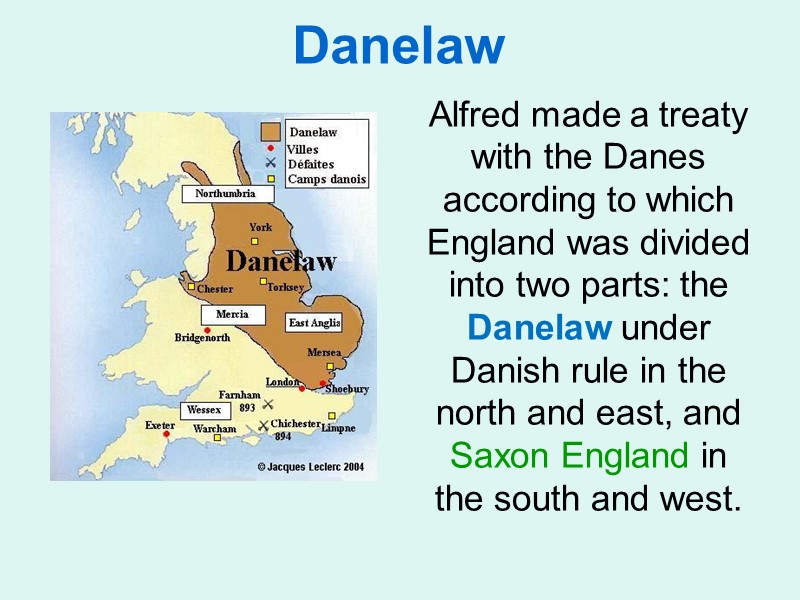
Danelaw Alfred made a treaty with the Danes according to which England was divided into two parts: the Danelaw under Danish rule in the north and east, and Saxon England in the south and west.
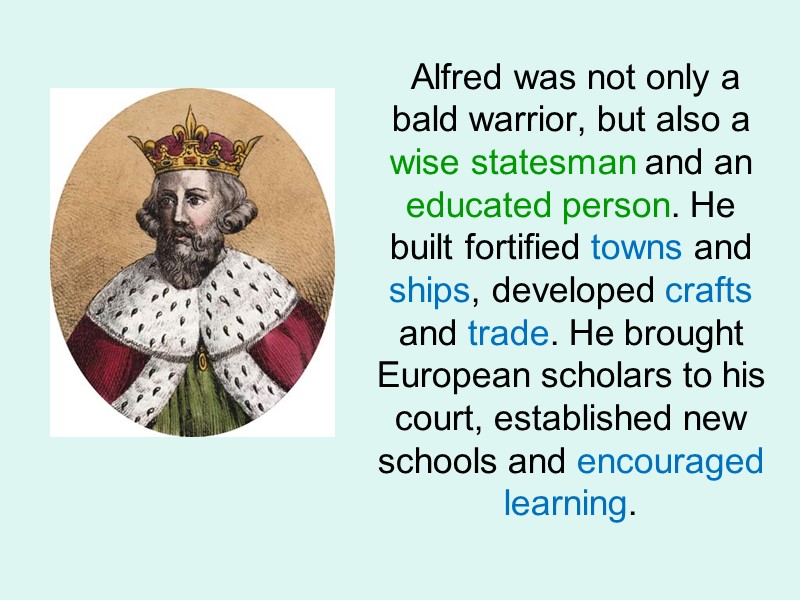
Alfred was not only a bald warrior, but also a wise statesman and an educated person. He built fortified towns and ships, developed crafts and trade. He brought European scholars to his court, established new schools and encouraged learning.
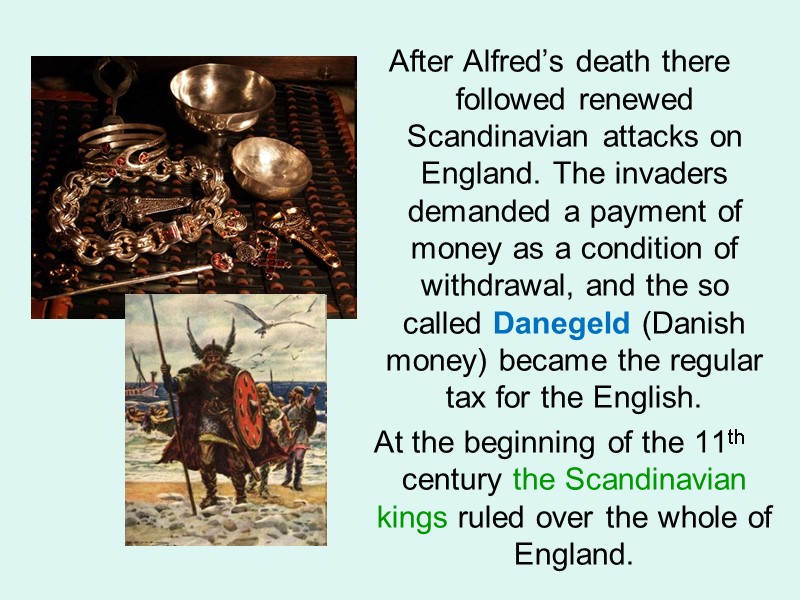
After Alfred’s death there followed renewed Scandinavian attacks on England. The invaders demanded a payment of money as a condition of withdrawal, and the so called Danegeld (Danish money) became the regular tax for the English. At the beginning of the 11th century the Scandinavian kings ruled over the whole of England.
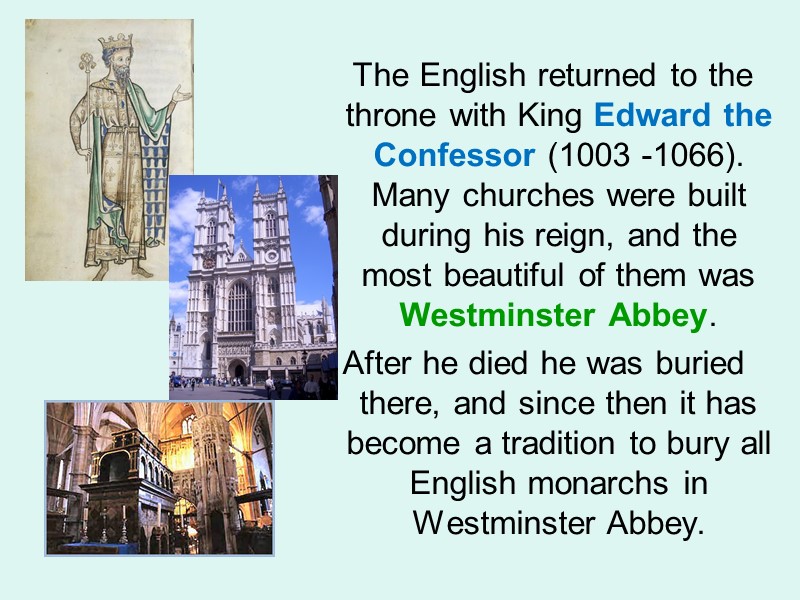
The English returned to the throne with King Edward the Confessor (1003 -1066). Many churches were built during his reign, and the most beautiful of them was Westminster Abbey. After he died he was buried there, and since then it has become a tradition to bury all English monarchs in Westminster Abbey.
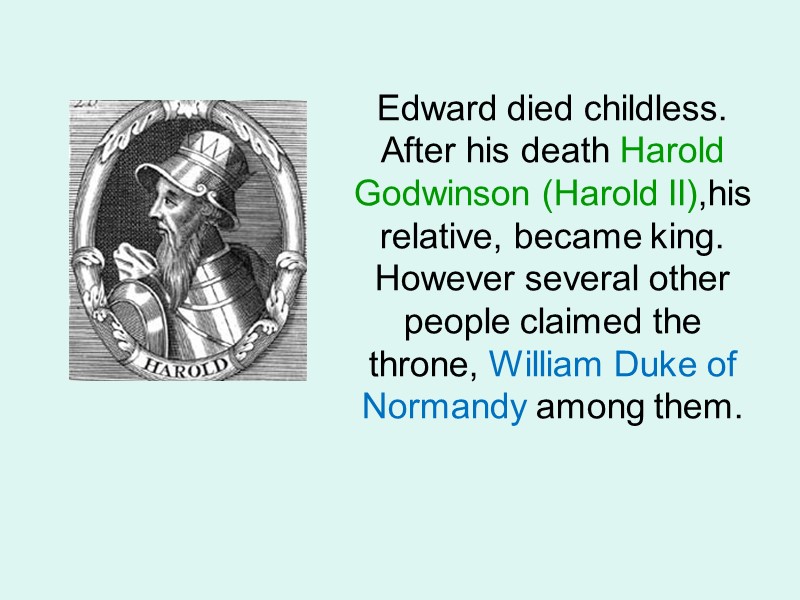
Edward died childless. After his death Harold Godwinson (Harold II),his relative, became king. However several other people claimed the throne, William Duke of Normandy among them.
35996-anglo_saxon_britain_s_textom.ppt
- Количество слайдов: 22

